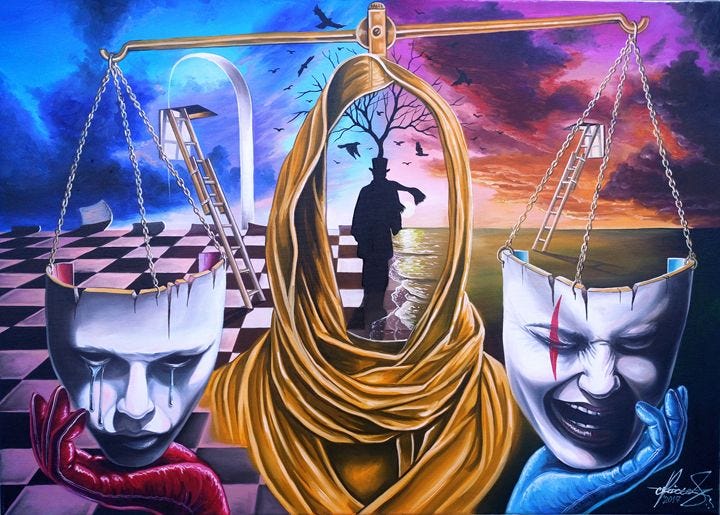The Power of Guilt
Guilt is a force like no other. It has the ability to move nations to arms and be an essential part of law. A synthesis between morals and immediate imperative, guilt rules the world in distress.
Guilt Is Always An Assertion Of Control
You can't feel guilty about something without asserting that you have control over it. To perform guilt is to de-facto assert a primacy position. Is it any coincidence that mainstream politics, which is to say, the politics of those who exercise the most total control in the world, is an exercise in self-deprecation and self-flagellation?
To say, “I am guilty of something” is not to simply say that “I did something wrong.” This is the static image of guilt which hides its dialectical and forceful nature. To be guilty is to assert that something must be done in order to negate this state of guilt. There is a necessary potential action embedded within guilt which allows power to flow through it in a way a simple order from a place of authority never could. In the case of the legal system, what comes soon after guilt is a judge’s pronouncement.
When guilt is felt by an individual person, it suggests that an action is not just possible, but morally necessary. A lack of action is a moral abomination in the eyes of the guilty. Russian literature knows this well, with resolutions not of happy endings, but rather of justice.
In the same sense as the legal pronouncement, guilt adds a force of future action.
What is to be done?
When someone comes to you with feeling, which is to say a feeling a guilt, or a feeling that another person should feel guilt and that justice must be done, know that this is power. This is not necessarily an act of malice by the guilt-wielding actor, but the objective force described above is embedded within their guilt pronouncement. A virus which pulls both you and the guild-wielder towards a certain action.
This is where Lacan’s idea of a name-of-the-father is necessary. Not all feelings of guilt are something to avoid. Guilt can be a movement of a justice which you wish to be interpersonally in the world. This can be sublated into a higher notion of positive force and freedom.
Guilt is an Immature Form of Positive Freedom
The criminal who feels guilty wants, in some respect, to live in a just world, and to be a just actor in a just world. The man who feels guilty when he doesn’t call his family wants to live in a world where family has positive force in his life. Guilt is not something which should be reacted against, which is to say, guilt is not a simple negative. Rather, guilt is a Freudian molecule, a synthesis of imperative and forcing action, which can be through rationality, made into a positive pronouncements.
We never have to be ruled by guilt, it can always be understood as the positive freedom which it has not yet been able to articulate.


